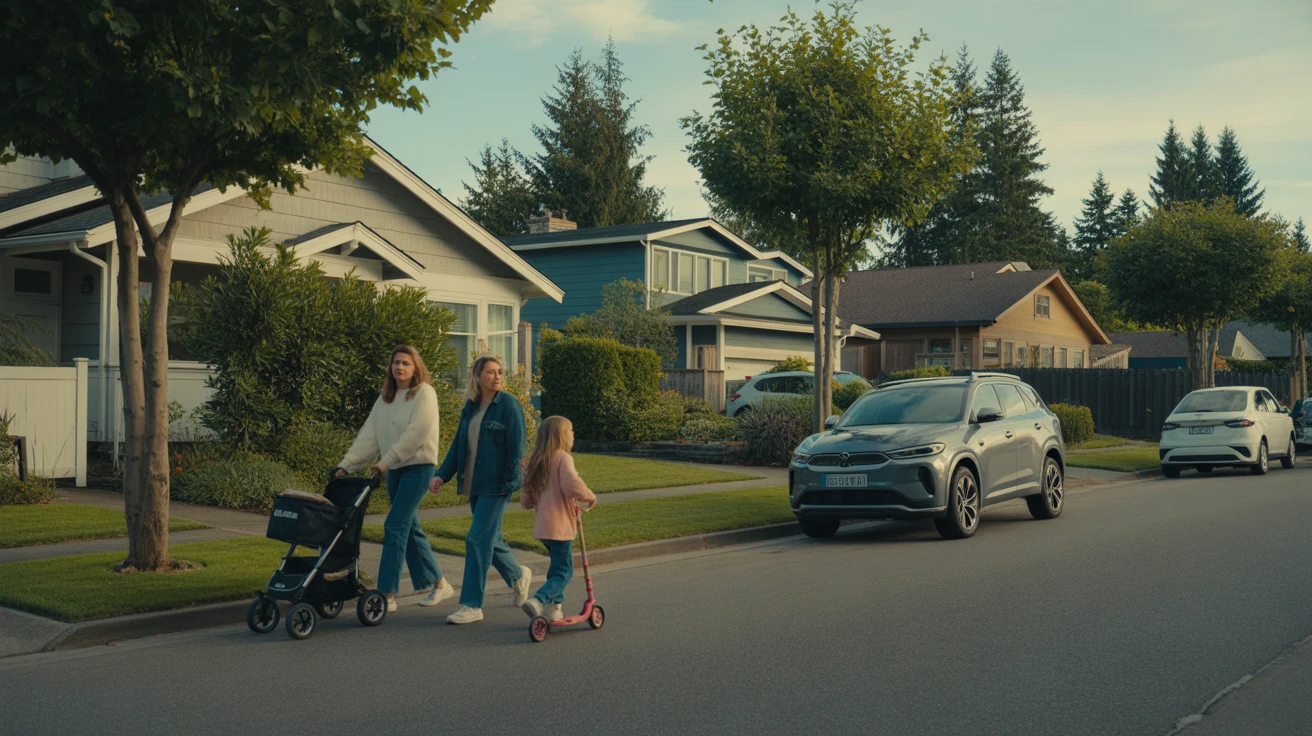Renton is considered moderately expensive in 2025, with average rent for a 2-bedroom apartment at $2,350 and slightly higher grocery and utility costs compared to national averages.
In Renton, a comfortable lifestyle for a single person requires a gross monthly income of around $4,800, while a couple may need $6,200 and a family of four around $8,500. Let’s break down where those dollars go.

Housing Costs in Renton
Housing is the biggest expense for most Renton residents. A typical 2-bedroom apartment rents for $2,100 to $2,600 per month, with prices varying based on location, age, and amenities. Newer complexes in desirable areas like The Landing tend to be on the higher end.
For those looking to purchase, a 3-bedroom single-family home ranges from $650,000 to over $1 million. Again, neighborhood matters. Kennydale and Renton Highlands offer more affordable options, while waterfront properties along Lake Washington command a premium.
Many Renton neighborhoods have active homeowners associations (HOAs). Monthly HOA fees typically fall between $200-500, covering amenities and exterior maintenance. While not universal, it’s an important cost to factor in, especially for newer developments and condos.
Utility Costs
Basic utilities in Renton—including electricity, natural gas, water, and garbage—average about $250 per month for a 2-bedroom apartment. Larger homes may see bills closer to $400. Summer cooling and winter heating can cause seasonal spikes.
High-speed internet adds another $65-100 per month, depending on provider and speed. Many residents bundle internet with cable or streaming services, which can push the total closer to $150-200.
| Utility | Typical Monthly Cost |
|---|---|
| Electricity | $90 – $150 |
| Natural Gas | $60 – $100 |
| Water/Sewer/Garbage | $100 – $150 |
| Internet | $65 – $100 |
Groceries and Food
Renton residents spend about $400 per month per person on groceries and dining out. A gallon of milk runs $3.50, while a dozen eggs cost around $3. Buying in bulk at stores like Costco or WinCo can help stretch food budgets.
Dining out is a bit pricier than cooking at home. Expect to pay $12-15 for a basic meal at a casual restaurant, or $30+ per person at nicer establishments. Of course, cooking most meals is an easy way for Renton residents to trim monthly expenses.
Taxes in Renton
Washington has no state income tax, but Renton residents pay a hefty 10.1% sales tax on most purchases. Property taxes are also relatively high, averaging 1.1% of a home’s assessed value annually.
For a $700,000 home, that means paying around $7,700 per year, or $640 per month. Renters don’t pay property tax directly, but it’s baked into most lease prices. Vehicle owners pay an annual registration fee, which varies based on the car’s value and type.
Transportation Costs
Many Renton residents commute to jobs in Seattle, Bellevue, or Redmond. A monthly pass on King County Metro runs $120, while an ORCA card covering metro buses, Link light rail, and Sounder trains is $192.
For drivers, the average commute is 30-40 minutes each way. With gas around $4/gallon, a typical commuter might spend $200/month on fuel alone. Parking, tolls, insurance, and vehicle maintenance add even more.
| Household Type | Estimated Monthly Budget (Gross) |
|---|---|
| Single Adult | $4,800 |
| Couple | $6,200 |
| Family of 4 | $8,500 |
These figures cover necessities like housing, food, utilities, and transportation, plus modest allocations for dining out, entertainment, and savings. Families with children face additional costs like childcare, extracurriculars, and increased food/healthcare spending.
The Renton Lifestyle
So what does this budget buy in Renton? For many, it means trading a bit of square footage and proximity to Seattle for relative affordability. Renton’s a solid choice for those who value having a yard or a bit more elbow room.
Compared to Bellevue or Redmond, Renton offers better housing value, especially for families. However, commute times are longer and urban amenities are fewer. It’s a tradeoff between cost and convenience.
That said, Renton boasts excellent parks, good schools, and a revitalized downtown. The Cedar River Trail is a gem for runners and cyclists. And as the city grows, so does its roster of restaurants, breweries, and entertainment options.
Frequently Asked Questions
Q: What salary do you need to live comfortably in Renton?
A: For a single person, a gross income of $57,600 ($4,800/month) allows for a comfortable lifestyle. Couples generally need $74,400 ($6,200/month), while a family of four requires around $102,000 ($8,500/month).Q: Is Renton cheaper than Seattle?
A: Yes, Renton is notably more affordable than Seattle proper. Housing costs about 20% less, while still providing reasonable access to the city.Q: Are utilities expensive in Renton?
A: Utility costs in Renton are slightly higher than the national average. Expect to pay around $250/month for a 2-bedroom apartment, or $400+ for a single-family home.Q: How much is the average rent in Renton?
A: As of 2025, the average rent for a 2-bedroom apartment in Renton is $2,350 per month. Prices range from $2,100 to over $2,600 depending on location and amenities.Q: Does Renton have high taxes?
A: While Washington has no income tax, Renton has a 10.1% sales tax and property tax rates around 1.1% of assessed value. For a $700K home, expect to pay $7,700 annually in property taxes alone.Q: Is Renton a good place to live?
A: Renton offers a good balance of housing affordability, suburban comfort, and access to Seattle’s thriving job market. It’s a solid choice for families or those who value a bit more space.Q: What’s the cost of living difference between Renton and Bellevue?
A: Renton is around 15% cheaper than Bellevue overall. The biggest difference is housing, with Renton offering more affordable options, especially for larger properties or single-family homes.
